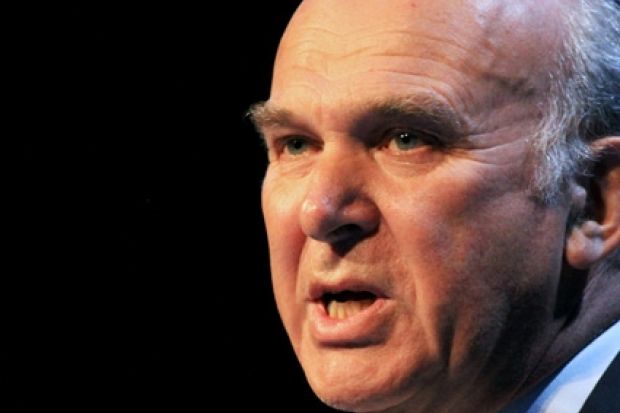In a speech to the Royal Society yesterday evening, Vince Cable argued that the UK’s “ongoing scientific prowess” depended on “openness” and “the exchange of students”.
“This might seem obvious, but there is always a powerful constituency arguing for closed minds and closed borders,” he said.
His comments came after reports earlier this week that Prime Minister David Cameron is considering a change of policy by taking overseas students out of the UK’s net migration figures.
This would stop them being affected by the government’s pledge to cut immigration to below 100,000 entrants a year by 2015.
On 10 July, Damian Green, the immigration minister, told a cross-party group of MPs that reports the policy would be changed were untrue.
He added that it would be a “denial of reality” if students were reclassified.
The coalition government has already ended the automatic right of foreign students to work in the UK for two years after they complete their studies and brought in tougher English language requirements for those studying sub-degree courses.
Mr Cable – who has consistently been at odds with the Home Office on the issue – admitted that these changes had come in for “strong criticism” from the academic and business communities.
“I accept that some of the signals sent from the UK have been damaging to the perception of how we welcome talent from overseas,” he said, adding later that a “clear-headed and liberal attitude to immigration” was crucial to scientific success.
“From everything I’ve said already, it should be clear that overseas talent is essential for a healthy research base, including via the undergraduate pipeline,” he added.
He also said that science should be made more diverse, pointing out that women make up less than a fifth of the sector.
In addition, Mr Cable reiterated the government’s position that “while intellectual property must be protected and commercial interests considered, it should be available with as few restrictions as possible”.
Register to continue
Why register?
- Registration is free and only takes a moment
- Once registered, you can read 3 articles a month
- Sign up for our newsletter
Subscribe
Or subscribe for unlimited access to:
- Unlimited access to news, views, insights & reviews
- Digital editions
- Digital access to THE’s university and college rankings analysis
Already registered or a current subscriber? Login
